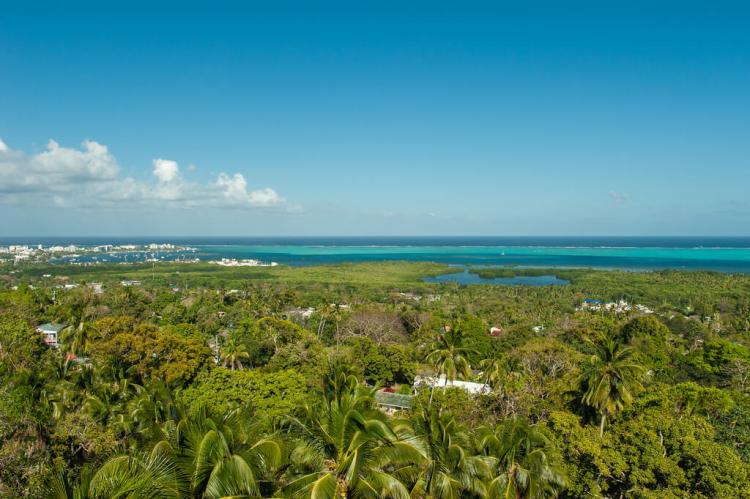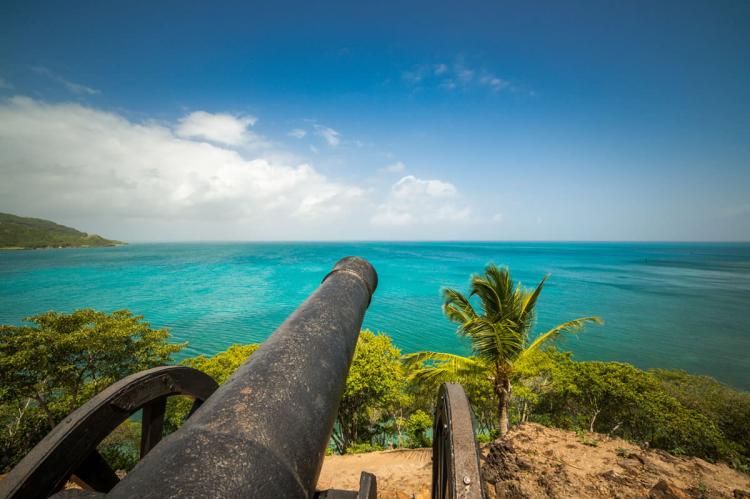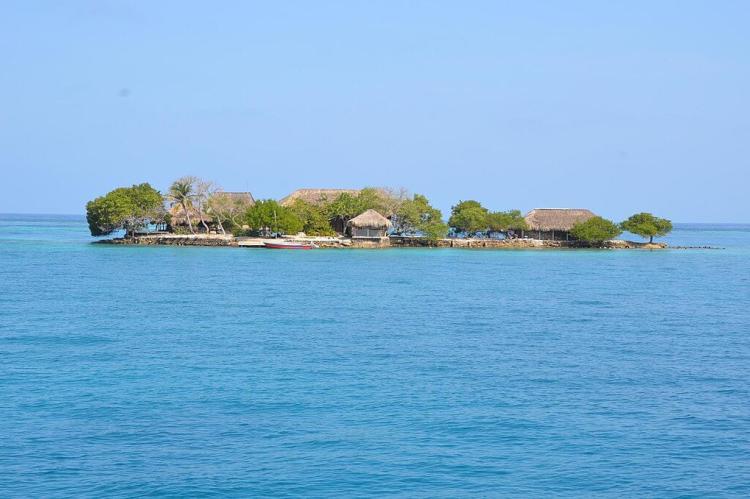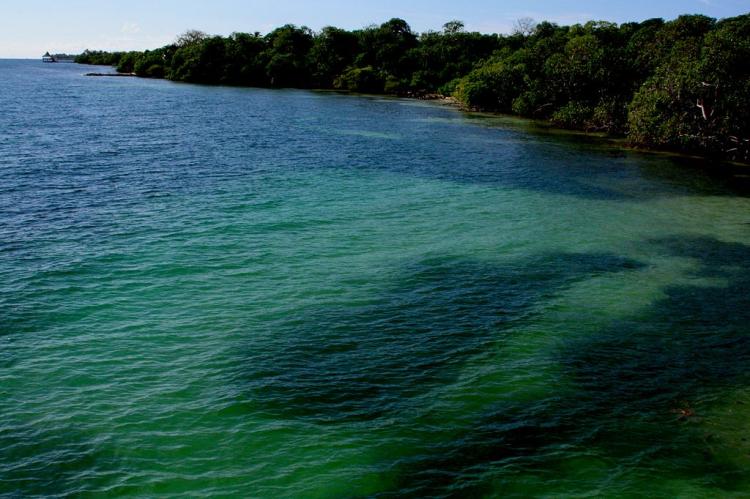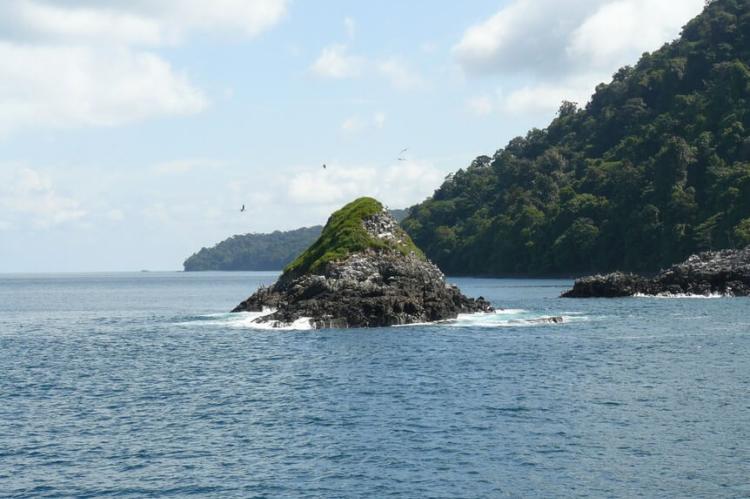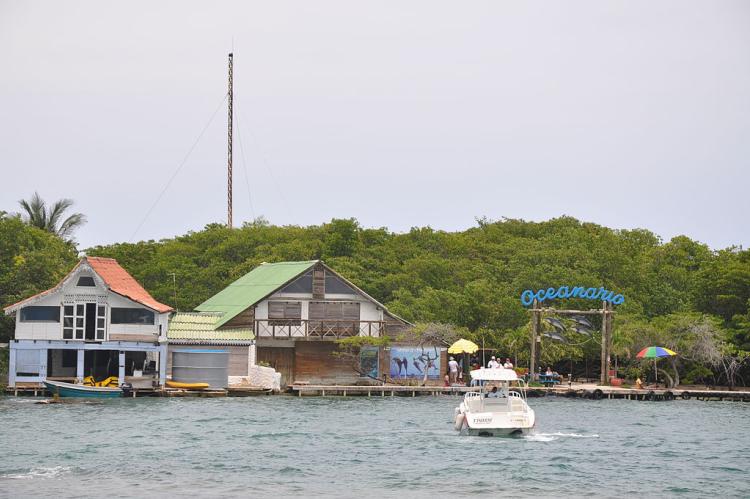Colombia's Islands and Archipelagos: Maritime Crown Jewels of the Caribbean and Pacific
Where the Caribbean and Pacific waters meet Colombia's coasts, islands and archipelagos beckon with their beauty and biodiversity. These territories, spread across vast ocean areas, are among Colombia's natural treasures, each with unique ecosystems and cultural heritage spanning centuries.
Emerald Waters and Coral Kingdoms: Colombia's Island Paradise
In the crystalline waters where the Caribbean Sea meets Colombia's northern shores and the Pacific Ocean embraces its western coast, a constellation of islands and archipelagos beckons with their pristine beauty and extraordinary biodiversity. These maritime territories, scattered across thousands of square kilometers of ocean, represent some of Colombia's most spectacular natural treasures, each harboring unique ecosystems, rich cultural heritage, and stories that span centuries of human history. From the coral atolls that rise like emerald gems from the Caribbean depths to the volcanic sentinels standing guard in the Pacific's vast expanse, Colombia's islands offer a remarkable journey through diverse marine worlds where ancient coral reefs teem with tropical life and local communities have forged deep connections with the sea.
The Caribbean Archipelagos: Jewels of the Northern Sea
The Archipelago of San Andrés, Providencia, and Santa Catalina
Rising from the deep Caribbean waters approximately 775 kilometers (482 miles) northwest of mainland Colombia, the Archipelago of San Andrés, Providencia, and Santa Catalina stands as Colombia's most renowned island destination. This remarkable cluster of coral islands, positioned about 230 kilometers east of Nicaragua and forming part of the western Caribbean's most extensive coral reef system, has earned recognition as a UNESCO Seaflower Biosphere Reserve since 2000.
San Andrés, the largest island in the archipelago and indeed all of Colombia, spans 26 square kilometers (10 square miles) of vibrant coral formations, white-sand beaches, and azure lagoons. The island pulses with life as the archipelago's commercial and tourism center, where the famous Sea of Seven Colors displays nature's artistry in varying shades of turquoise and emerald. The island's unique geography features a coral barrier that creates shallow lagoons on the eastern side, while dramatic cliffs and deeper waters characterize the western shores.
Providencia, smaller yet equally enchanting at 17 square kilometers (6.5 square miles), offers a more intimate encounter with Caribbean paradise. This mountainous island, with peaks reaching 360 meters (1,181 feet) above sea level, harbors some of the Caribbean's most pristine coral reefs and maintains a distinctly different cultural atmosphere from its larger neighbor. The island's rugged interior shelters dense tropical forests that cascade down to hidden beaches, while the surrounding waters teem with marine life that has made Providencia a world-renowned diving destination.
Santa Catalina, the smallest member of the trio at just 1 square kilometer (247 acres), connects to Providencia via a picturesque pedestrian bridge known as the Lovers' Bridge. Despite its diminutive size, this island plays a crucial role in the region's ecological balance and serves as a gateway to some of the archipelago's most spectacular underwater landscapes.
The cultural tapestry of these islands weaves together African, English, and Spanish influences, creating the unique Raizal culture. The Indigenous Raizal people, descendants of enslaved Africans and English colonists, maintain their ancestral language—San Andrés-Providencia Creole—alongside Spanish and English, creating a trilingual society that reflects the archipelago's complex historical narrative.
The Rosario and San Bernardo Islands: Caribbean Coral Gardens
Closer to Colombia's mainland, approximately 45 kilometers (28 miles) southwest of Cartagena, the Rosario and San Bernardo archipelagos form an intricate maze of coral islands, mangrove forests, and crystal-clear lagoons. This collection of 30 islands and countless islets, most of which remain uninhabited, protects one of the Caribbean's most vital coral reef ecosystems within the boundaries of the Rosario and San Bernardo Corals National Natural Park, established in 1988.
The Rosario Islands, positioned about 20 kilometers (12 miles) from the historic shores of Cartagena, serve as the more accessible portion of this marine sanctuary. These low-lying coral formations, none rising more than a few meters above sea level, create perfect conditions for snorkeling and diving adventures. The islands' shallow lagoons, fringed by mangrove forests, provide nursery habitats for countless marine species, while the surrounding coral gardens support an extraordinary diversity of tropical fish, sea turtles, and rays.
Further south, the San Bernardo archipelago includes one of the world's most remarkable human settlements: Santa Cruz del Islote. This tiny artificial island, created by fishermen using conch shells and coral debris, measures only 0.012 square kilometers (0.005 square miles) yet supports over 1,200 residents, making it one of the most densely populated places on Earth. The island's colorful houses, built virtually on top of one another, create a vibrant community that has learned to thrive in harmony with the surrounding marine environment.
Pacific Ocean Sanctuaries: Remote Wilderness Islands
Gorgona Island: From Prison to Paradise
In the vast expanse of the Pacific Ocean, approximately 35 kilometers (22 miles) west of Colombia's Cauca coast, Gorgona Island emerges as a testament to nature's resilience and the power of conservation. This volcanic island, covering 26 square kilometers (10 square miles) of dense tropical rainforest, bears a dark chapter in its history as Colombia's former maximum-security prison, once known as "Colombia's Alcatraz." However, since its transformation into Gorgona Natural National Park in 1984, the island has become a beacon for biodiversity conservation and scientific research.
The island's interior harbors one of the Pacific coast's most pristine tropical rainforests, where endemic species thrive in isolation. The forest canopy echoes with the calls of howler monkeys (Alouatta palliata), while the understory shelters numerous species found nowhere else on Earth, including the Gorgona anole (Anolis gorgonae) and several endemic plants. The surrounding waters, part of the park's 620 square kilometers (240 square miles) of marine territory, provide critical habitat for migrating humpback whales (Megaptera novaeangliae), which arrive each year between July and November to breed and give birth in the island's protected waters.
Gorgona's coral reefs, among the few healthy reef systems remaining on Colombia's Pacific coast, support an extraordinary diversity of marine life. Hammerhead sharks (Sphyrna lewini), whale sharks (Rhincodon typus), and massive schools of tropical fish create underwater spectacles that rival any diving destination in the world. The island's beaches serve as nesting grounds for several sea turtle species, including the critically endangered hawksbill turtle (Eretmochelys imbricata) and the massive leatherback turtle (Dermochelys coriacea).
Malpelo Island: UNESCO World Heritage Marine Sanctuary
Far from any continental influence, approximately 500 kilometers (310 miles) west of Colombia's mainland, Malpelo Island rises from the Pacific depths as a stark, volcanic sentinel. This barren rocky outcrop, measuring just 1.5 kilometers (0.9 miles) in length and 640 meters (700 yards) at its widest point, may appear inhospitable from the surface, but beneath the surrounding waters lies one of the world's most spectacular marine ecosystems.
Malpelo's highest peak, Cerro de la Mona, towers 300 meters (984 feet) above the ocean surface, creating dramatic cliffs that plunge directly into the abyss. The island's harsh, treeless landscape supports only the most adapted life forms, including vast colonies of seabirds such as the masked booby (Sula dactylatra) and red-footed booby (Sula sula), which nest on the island's precipitous ledges.
However, Malpelo's true treasures lie hidden beneath the waves. Designated as a UNESCO World Heritage Site, the island serves as the centerpiece of the Malpelo Fauna and Flora Sanctuary, protecting 857,150 hectares (2,117,471 acres) of marine territory. These waters represent a critical corridor for migratory marine species and harbor the largest population of hammerhead sharks in the tropical eastern Pacific. Schools of scalloped hammerheads (Sphyrna lewini) create mesmerizing underwater tornadoes around the island's seamounts, while whale sharks, manta rays (Mobula birostris), and numerous species of tuna and billfish complete this remarkable marine community.
The island's isolation and the convergence of several ocean currents create unique oceanographic conditions that support this extraordinary biodiversity. Cold upwelling waters bring nutrients to the surface, supporting massive food chains that extend from microscopic plankton to apex predators, making Malpelo one of the world's premier destinations for pelagic diving.
Coastal Islands: Accessible Paradise
Beyond the remote oceanic islands, Colombia's coastline is dotted with numerous smaller islands that offer more accessible glimpses of the country's maritime beauty. Barú Island, connected to the mainland south of Cartagena, enchants visitors with Playa Blanca, one of the Caribbean's most photographed beaches, where powdery white sand meets impossibly blue water. Despite its popularity, the island maintains pockets of mangrove forests and coral reefs that continue to support diverse marine ecosystems.
Tierra Bomba Island, guarding the entrance to Cartagena Bay, combines natural beauty with historical significance. The island's strategic position made it a crucial defensive point during colonial times, and today, visitors can explore both its pristine beaches and the remnants of Spanish fortifications while enjoying its proximity to one of South America's most beautiful colonial cities.
Conservation Challenges and Triumphs
Colombia's islands face numerous conservation challenges in the 21st century. Climate change threatens coral reefs through rising sea temperatures and ocean acidification, while increasing tourism pressure tests the delicate balance between economic development and environmental protection. Overfishing, plastic pollution, and invasive species introduction pose additional threats to these fragile ecosystems.
However, Colombia has demonstrated a remarkable commitment to protecting these maritime treasures. The establishment of marine protected areas, strict regulations on fishing and tourism activities, and international cooperation through UNESCO designations have created a framework for long-term conservation. The success of Gorgona's transformation from prison to protected park demonstrates that even the most damaged ecosystems can recover when given proper protection and management.
A Living Laboratory of Biodiversity
These islands and archipelagos represent far more than tourist destinations; they serve as living laboratories where scientists study marine ecology, evolution, and climate change impacts. The isolation of these island ecosystems has created unique evolutionary pressures, resulting in high levels of endemism and making them invaluable for understanding biodiversity and speciation processes.
Research conducted on these islands contributes to global understanding of coral reef ecology, marine migration patterns, and the impacts of human activities on oceanic ecosystems. The long-term monitoring programs established in places like the Seaflower Biosphere Reserve and Malpelo Sanctuary provide crucial data for conservation efforts throughout the Caribbean and Pacific regions.
Colombia's islands and archipelagos stand as a testament to the extraordinary diversity and beauty of our planet's marine environments. From the vibrant coral gardens of the Caribbean to the dramatic volcanic landscapes of the Pacific, these maritime territories offer glimpses into both the past and future of ocean conservation. As guardians of these natural treasures, Colombia continues to strike a balance between the needs of local communities, scientific research, and conservation, ensuring that future generations will inherit these spectacular marine sanctuaries in all their pristine glory.
